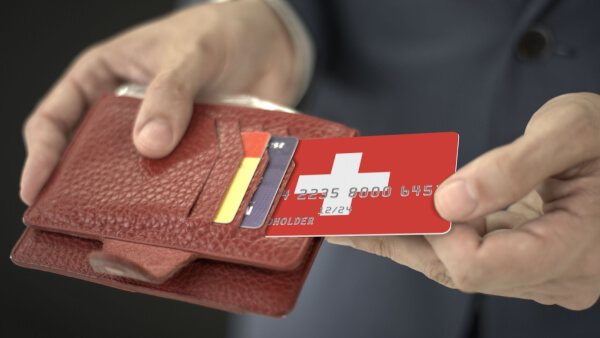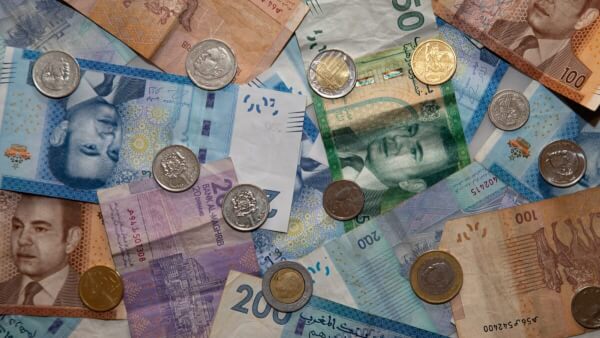Best expat bank accounts in the UK
Discover the best expat bank accounts in the UK, including monthly fees, account benefits, and who is eligible for a non-resident bank account in the country.

Thinking of moving to Belgium for work or study? Whether you’re staying a few months or moving there permanently, one of the first things you’ll need is a Belgian bank account.
In this guide, we’ll cover everything you need to know about opening a bank account in Belgium as a UK expat or student. This includes the documents you’ll need, an overview of Belgian banks and whether there are any fees.
Make Wise your travel companion. Open a Wise multi-currency account and you’ll be able to hold and manage your money in 40+ currencies, including GBP and EUR.
You can send and receive money internationally, and even spend on a linked international debit card - at the mid-market exchange rates for low fees*.
But more on this later. For now, let’s focus on how to open a bank account in Belgium, starting with the basics.
You should find it pretty easy to open a Belgium bank account as a UK national, as long as you have the right paperwork.
You’ll usually be asked for proof of address, but some banks may accept non-Belgium addresses. You can also apply for an account as a non-resident foreign national if you have economic links to the country.1
It all depends on the bank, so you might need to do some research to find one that’s a good fit.
It isn’t a legal requirement to have a local bank account in order to live in Belgium. If you’re starting a business there though, you will definitely need one.
You may be able to manage without a personal current account for a short time, especially if you have something like the Wise account to send, spend and receive money in multiple currencies.
But in the long term, you might find that everyday things like getting paid by your employer, paying rent and covering bills is more difficult without any kind of local or international current account. Even things like signing up for a mobile phone contract can be more of a headache.
Wondering whether you can keep using your UK account while in Belgium, and avoid the hassle of opening a local account?
Unfortunately, it’s unlikely that you’ll be able to do this, although it depends on who you bank with in the UK.
Major UK banks such as Barclays only let you keep your account when moving overseas if you meet certain conditions. For example, if you’re a UK Crown employee or you’re only planning to live abroad for a short term (less than 6 months) before returning to the UK.2
Other banks take a different approach. For example, international bank Santander says it will continue to service accounts when the holder moves abroad. You won’t be able to open a new one though, unless you’re a permanent UK resident.3
So if you’re a Santander customer, you should in theory be able to continue using your UK account in Belgium.

Yes, you can open a bank account in Belgium as a new arrival from the UK. There are no rules preventing foreign citizens opening bank accounts there, and most banks have English-speaking staff and services too.
You’ll just need to make sure you have your documents ready, with valid ID being the most important. We’ll cover exactly what you need shortly.
Most banks in Belgium now let you open an account online, or at least start the process.
If you’re opening a Belgian bank account from the UK, you may be able to submit your request online. The bank will then send you the relevant forms to complete, along with any information and instructions you’ll need.
You may need to make one visit to a branch in person when you arrive in Belgium, just to verify your ID.4
Most of the major Belgian banks such as ING, KBC and BNP Paribas Fortis offer dedicated accounts for students and young people. The common feature of these accounts is that they’re free of charge, and many are linked to convenient mobile banking apps.
Examples include:
The good news is that generally speaking, you shouldn’t need a heap of paperwork in order to open a bank account in Belgium. In fact, it’s pretty straightforward.
The specific documents you’ll need will vary from bank to bank. But in general, here’s what you should have ready:1
Just in case you’re asked for it, you might also want to have proof of income to hand. A recent pay slip or letter from your employer should do the trick.
If you’re opening an account in person, you’ll need to make an appointment and take your documents along with you on the day. Otherwise, you can just upload them when prompted during the bank's online application process.
All banks will accept a valid passport as proof of ID, although you could also use a national identity card.
A utility bill or rental contract should suffice, although you’ll need to check with the bank whether they require evidence of a local address in Belgium - or whether an address outside the country is acceptable.

Due to the large expat presence in Belgium, you’ll find many banks with international capabilities and English-speaking services.
In addition to local banks, Belgium also has a number of international banks - such as Santander, which could be useful if you already have a Santander account in the UK.
To help you find the best Belgium bank account for expats, let’s take a look at four of the country’s biggest banks:
One of the top banks in the world, BNP Paribas Fortis is also one of the biggest banks in Belgium. It offers a range of accounts and services, as well as mortgages, insurance, savings and investments.
Its everyday banking offer includes a number of banking packages - the Easy Guide Pack, Easy Go pack and Hello Pack. You can customise these as you wish, adding extra services such as credit cards.
KBC Bank was founded in Belgium, but today has millions of clients across multiple countries.
Depending on your needs, you can choose between the KBC Basic Account and KBC Plus Account. Both include online banking and a debit card. There’s also the Young Person’s account for under 25s.
Founded in 1996, Belfius is an integrated bank and insurance company. It’s state-owned, which makes it 100% Belgian.
Belfius offers two main payment accounts - Beats New and Beat Star. One of its most popular options for daily banking is Beats Pulse, a free online account with a debit card.
ING Bank Belgium is part of the global banking group ING, and offers a full range of retail and commercial banking services. It has a wide network of branches across Belgium.
Its everyday banking solutions include the Do Basic and Do More packages, which bundle together a current account, debit card and other perks.
Besides traditional banks, there's also a number of digital banks to choose from in Belgium.
This list includes:
You can also check out other non-bank alternatives, which don’t have a banking licence but offer services such as accounts, payments and cards.
This includes the money services provider Wise, which has a multi-currency account, international debit card, transfer services and handy mobile app available to use in Belgium.
There are some fees and charges you need to know about before you open your new bank account in Belgium.
This includes fees for money transfers, debit cards and monthly maintenance fees.
These vary between banks, but take a look below for a rough idea of what costs to expect.
| Transaction/fee type | Typical fee |
|---|---|
| Opening an account | Usually free |
| Monthly fee | €05 to €7.506 EUR |
| ATM cash withdrawal | Limited number fee-free Around €0.50 EUR above free allowance7 |
| Getting a debit card | Usually free |
| Domestic payments (i.e. within Belgium) | Usually free |
| International payments (i.e. to the UK from Belgium) | Between €14.52 and €145.20 EUR depending on currency and destination8 |
Yes, it is possible to get a free everyday bank account in Belgium. Some banks such as Belfius offer free digital accounts, and fees are usually waived for students and young people on most current accounts.
Need to manage your money in multiple currencies or send transfers back home to the UK? There are alternatives to using a bank, such as Wise.
Open a Wise account and you’ll only pay a small, transparent fee to send money in 40+ currencies (including EUR and GBP). Better still, you’ll get the mid-market exchange rate for your foreign currency transactions for only a small, transparent fee*.
Here are some of the main benefits for using Wise to send money:
You can also get a Wise card for a one-time fee of just £7 and use it to spend like a local in Belgium, Europe and 150+ countries worldwide. There are no hidden fees, and you can even connect your Wise card to Google Pay or Apple Pay.
Importantly, you can open a Wise account in advance of your move to Belgium. This means you’re not left without a payment method while you’re waiting for your new Belgian bank account.
Sources used:
Sources last checked on date: 15-July-2024
*Please see terms of use and product availability for your region or visit Wise fees and pricing for the most up to date pricing and fee information.
This publication is provided for general information purposes and does not constitute legal, tax or other professional advice from Wise Payments Limited or its subsidiaries and its affiliates, and it is not intended as a substitute for obtaining advice from a financial advisor or any other professional.
We make no representations, warranties or guarantees, whether expressed or implied, that the content in the publication is accurate, complete or up to date.

Discover the best expat bank accounts in the UK, including monthly fees, account benefits, and who is eligible for a non-resident bank account in the country.

Read our handy guide on if you can keep your bank account in Switzerland if you move abroad? Find out everything you need to know.

Read our guide and find out how to open a Chase UK account, how long the process takes and all the details you need to get started.

Read our guide to Starling Bank limits on UK and international transfers, ATM withdrawals and card spending for personal customers.

Find out how to open a Starling Bank account online in the UK with our comprehensive guide, covering eligibility, requirements and how to get started.

A list of the top 10 banks in Morocco, including CIH Bank, Attijariwafa Bank, Bank of Africa and Al Barid Bank.